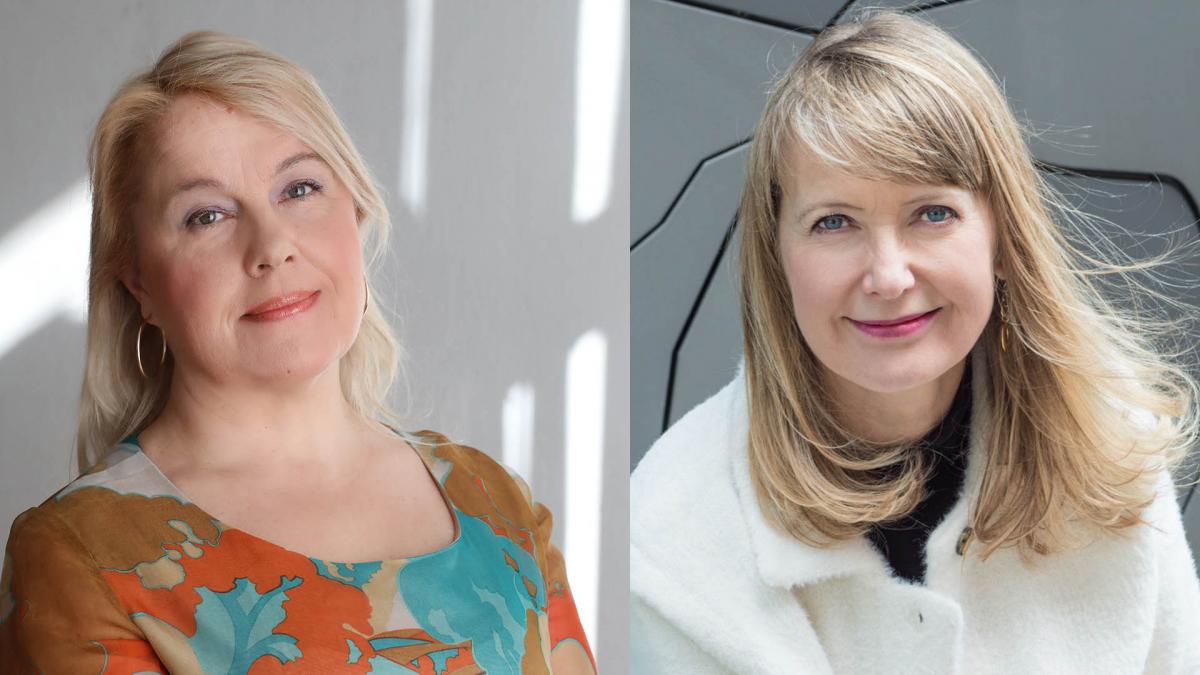Meet the masterclass artist duo: soprano Anu Komsi and pianist Pia Värri
This week, our vocal music students are exploring Kaija Saariaho’s songs in a masterclass with soprano Anu Komsi and pianist Pia Värri. Masterclasses offer our students different influences in finding their own individual artist profiles and outlining future options. Here’s this artist duo’s thoughts on supporting our young artists on the challenging path of a professional singer.

What motivates and inspires you to guide young singers studying at the Sibelius Academy?
Anu Komsi: In this Saariaho course, I am motivated by the great singing repertoire of our time, which Kaija Saariaho has masterfully written for the vocal voice and which is a pleasure to both teach and hear as personal interpretations.
Pia Värri: Kaija Saariaho’s musical language is incredibly rich and it touches deeply. For my part, I hope to be able to support and encourage students to find their personal grip and interpretation.
What kind of encounters do you want to create with students during this exceptional time?
Anu: I hope I can help each student find a personal connection to Saariaho’s music that makes it easier to internalise its tonal landscape. I strongly believe that singing as a psychophysical function in general helps us all to be able to adapt to this time more easily and to believe in the future expressly through art.
Pia: The situation has been so critical for a long time that it has particularly affected the fundamental right of the performing arts to exist. However, there seems to be a small spark of hope in the air, so hopefully the course will inspire us to look to the future, for example, through a new repertoire.
What keywords would you use to describe your teaching pedagogy?
Anu: The master-apprentice teaching model is the basis for everything. It emphasises conductor-based learning throughout the score, so that singing is an instrument among instruments, thus best serving the will of the composer. This way the text also becomes part of the expression and interpretation. In a learner-centred teaching situation, the Suzuki method is also inherent to me, and I prefer to imitate when I know I can give an example with my voice on how to overcome a technical challenge.
Pia: I try to face each student as an individual who is at their own specific point on an artist’s musical journey and to whom I hope to give support as a slightly more experienced colleague.
How do you see your role in supporting students’ individual artistic profiles?
Anu: I want to encourage students to exceed their boundaries and believe in their own strengths so that choosing and following their own path would be easier on the challenging path of a professional singer.
Pia: I think the teacher is a kind of mirror onto which the student can test their own profiling. It is good to offer an opinion and listen. Sometimes something can stay bustling for years, and then it comes up unexpectedly and becomes useful.
In your experience, what makes Sibelius Academy a unique environment for learning and honing one’s skills and competencies?
Anu: I have experience as a visiting teacher for only a few course periods, but especially now that the Helsinki Music Centre (Musiikkitalo) also has the country’s leading orchestras, cooperation and networking with them already during studies is very fruitful and helps to understand the requirements of the field. At the same time, seeing concerts is very easy.
Pia: I have been an expatriate Finn for a long time, so I don’t really know much about the current environment of the Sibelius Academy, but I believe it is the same as in other music colleges. The network of study time contacts in many fields of art, the experience and knowledge shared by teachers, the expansion of one’s own boundaries in a safe environment, the constant learning of new repertoire as well as progress together with other students create a solid foundation for the entire future life as a professional musician.
Thank you for your masterclass, Anu and Pia!
* * *
Soprano Anu Komsi made her international opera debut at the Frankfurt Opera at the age of 26 in 1993. On the world’s leading opera and concert stages, she is known for her exceptionally wide repertoire, which also includes premieres of many works of international renown. The collaboration with Kaija Saariaho began during her studies at the Sibelius Academy, where she graduated with a singing diploma under Marjut Hannula in 1992. Komsi worked as an artistic director at the Kokkola Opera in 2006-2017. In addition to her career as a professional singer, she has taught both privately and at universities and colleges in the United States and across Europe.
Pianist and accompanist-coach Pia Värri works as an accompanist lecturer at the Conservatoire de Boulogne-Billancourt, as an accompanist teacher at the Pôle Supérieur de Paris-Boulogne and as an accompanist-coach at the Paris Conservatory’s vocal department. She has also worked as an opera coach at the Finnish National Opera, the Théâtre de Châtelet, the Opéra de Lyon and the Kokkola Opera. Värri has taught at the Joutseno Art Summer course for several years and has accompanied the Castelluccio tra Musica e Natura summer courses in Italy.
Anu Komsi and Pia Värri have premiered and recorded several songs by Finnish composers. They have worked with Kaija Saariaho with the Leino songs, originally commissioned by Komsi, and Saarikoski songs, most recently created for this year’s album “Sumun läpi” (Through the Mist).